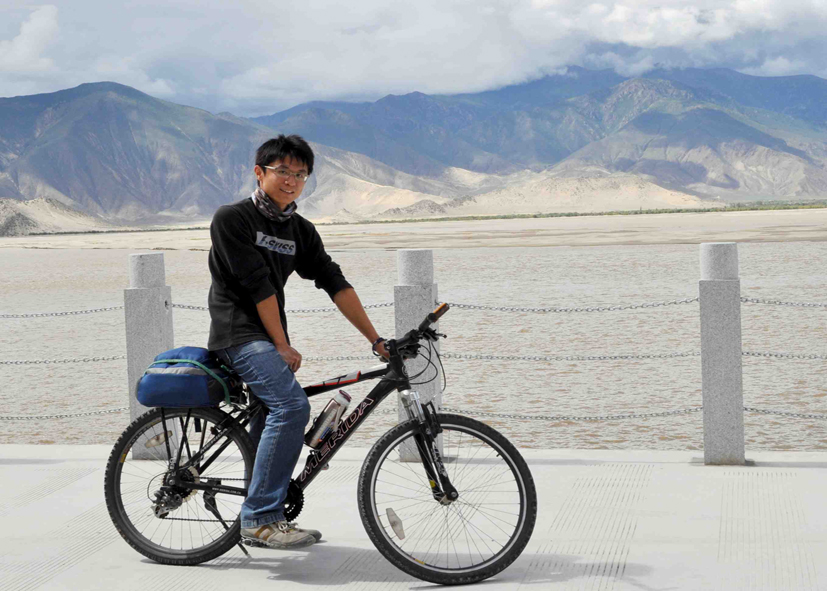Exploring New Paths
By Dilys Chan
Like all
first-year PhD students, Haoran Li has a long academic journey ahead of him.
However, unlike most students, Li's journey has already taken him a 15-hour plane ride from his hometown of Chengdu, China. Li, who arrived at the University of Toronto in September on a
$35,000 Connaught scholarship, is a student in the lab of Dr.
Burton Yang, a senior scientist in the Odette
Cancer Research Program at Sunnybrook
Research Institute. Here, he talks about his path from clinical to laboratory research, his experience applying for a PhD in Canada and how it all relates to the teachings of ancient Chinese philosophy.
Why did you decide to study abroad rather than stay in China?
It's a tradition for Chinese students to study abroad after their graduation from university, or even as early as high school. Studying internationally gives you the chance to broaden your vision, meet different people and experience a different culture.
How did you end up at Sunnybrook Research Institute?
By chance. I applied to a few countries for my PhD: Germany, the UK and Canada. When I found out I was not only accepted, but that I got a scholarship, I was so happy I wanted to scream. The scholarship awarded a lot of money, and only 10 people at U of T received it. I'm really lucky.
Tell me about your application process.
Normally, to apply for a PhD, you send a couple of emails every day for months to professors you want to work with. But when I sent Dr. Yang my first email, he replied quickly and agreed to admit me based on my CV. He wanted to form a research relationship with my university (Sun Yat-sen University), one of the top universities in Guangdong province. As well, a PhD student in his lab had just graduated, so he had grants and available space.
Tell me about your research.
Originally, we thought that genes-the code of life-were from DNA, RNA, and that was it. But the human genome project found that humans don't have many more genes than mice do. So, why is it that human beings became the dominant species? This led researchers to think that maybe there are other things regulating genes, such as what our lab is studying: microRNA. Recently, it has become apparent that microRNA regulates post-transcription of genes. Development of cancer may be tied to microRNA, so we want to understand the relationship for hints on how to treat cancer.
You used to study clinical medicine. Why focus on lab research now?
A Confucius saying comes to mind. He says that he who learns but does not think is lost, and he who thinks but does not learn is in great danger. For me, that means if I do clinical work without knowing the frontline of scientific research, I may lose direction. And if I do research without thinking about how to translate discoveries into clinical use, then my efforts will be in vain.
How's the adjustment from clinical work to lab research?
It's quite a jump. Before starting my PhD, my major was oncology and I treated cancer patients. I have a lot to learn. My cells are like my babies-I monitor them twice a day and keep them in a warm and healthy environment. But every day I find some dying! It can be so disappointing. On the other hand, as an oncologist it was hard to see cancer patients get worse day by day. In the lab, your cells may die, but you can replace them and try again-although there is pressure to publish.
Do you have plans after you finish your PhD?
It's so far ahead, but if there's a chance, I would like to be a clinician-scientist and combine my clinical work with my research work.






